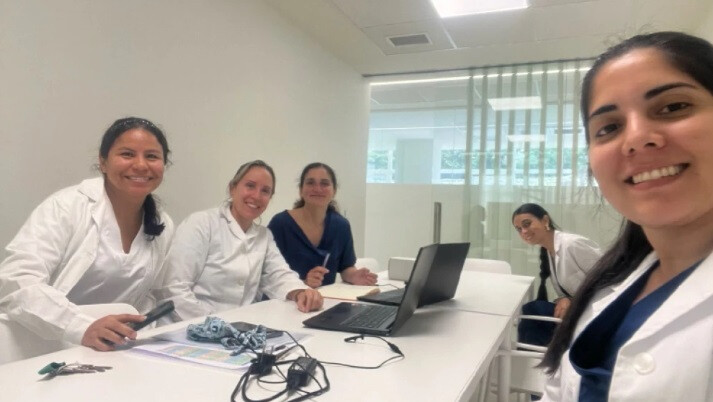
Researchers from the National University of Caaguazú (UNA) and the National Institute of Health (INS) in Paraguay have achieved international recognition, with their in-depth research paper on improving antibiotic use among dentists being published in a prestigious Q1-ranked scientific journal by Oxford University Press.
Led by Dr. Julieta Méndez Romero, the study, titled "Interventions to improve antibiotic use among dentists: A systematic review and meta-analysis," is the culmination of Dr. Méndez's continuous research efforts, for which she has been recognized as a Level 1 researcher by the National Council for Science and Technology (Conacyt) of Paraguay.
The study demonstrated that various strategic interventions, such as education and audit, are effective in improving dentists' antibiotic prescribing behavior towards more appropriate practices. Notably, the research results showed a remarkable 70% reduction in inappropriate antibiotic prescriptions, raising significant expectations for a breakthrough in addressing the global problem of antibiotic resistance.
The open-access publication of this research paper was made possible through financial support from the University of Santiago de Compostela and the Galician University System Consortium (CISUG) in Spain. More detailed information about the research can be found in the online journal at https://doi.org/10.1093/jac/dkaf118.
Antibiotics are essential drugs for treating bacterial infections, but their inappropriate and excessive use has led to the emergence of antibiotic-resistant superbugs, posing a global public health threat. Antibiotic resistance can lead to increased treatment duration, higher healthcare costs, and even increased mortality rates, making the development of effective countermeasures an urgent matter.
Dentistry is one of the fields where antibiotics are frequently prescribed, and inappropriate antibiotic use in this area can significantly contribute to the exacerbation of antibiotic resistance. Therefore, improving antibiotic prescribing behavior among dentists has been emphasized as a crucial strategy for preventing the spread of antibiotic resistance.
Dr. Méndez's research team systematically reviewed and conducted a meta-analysis of various interventions aimed at improving antibiotic prescribing behavior among dentists. Meta-analysis is a research method that integrates the results of multiple studies to overcome the limitations of individual studies and provide stronger evidence.
The researchers comprehensively analyzed existing studies and found that interventions such as educational programs, provision of prescribing guidelines, and prescription audits with feedback were effective in significantly improving dentists' antibiotic prescribing behavior. In particular, the application of these interventions resulted in an astonishing 70% reduction in inappropriate antibiotic prescriptions, offering new hope for resolving the antibiotic resistance problem.
The findings of this study provide important evidence for the development and implementation of antibiotic stewardship programs in the dental field. Based on this research, the team plans to further refine various intervention strategies that can be effectively applied in real clinical settings and to intensify efforts to develop education and training programs for dentists.
Furthermore, the research results offer significant implications for the policy decisions of health authorities. It is expected that national guidelines and support for improving antibiotic prescribing behavior among dentists, as well as the establishment of audit systems, will enable a more proactive response to the problem of antibiotic resistance.
The achievement of the researchers from the National University of Caaguazú and the National Institute of Health is recognized as an example of the international recognition of Paraguay's excellent scientific research capabilities, and they are expected to continue contributing to the promotion of human health through ongoing research activities.
[Copyright (c) Global Economic Times. All Rights Reserved.]






























